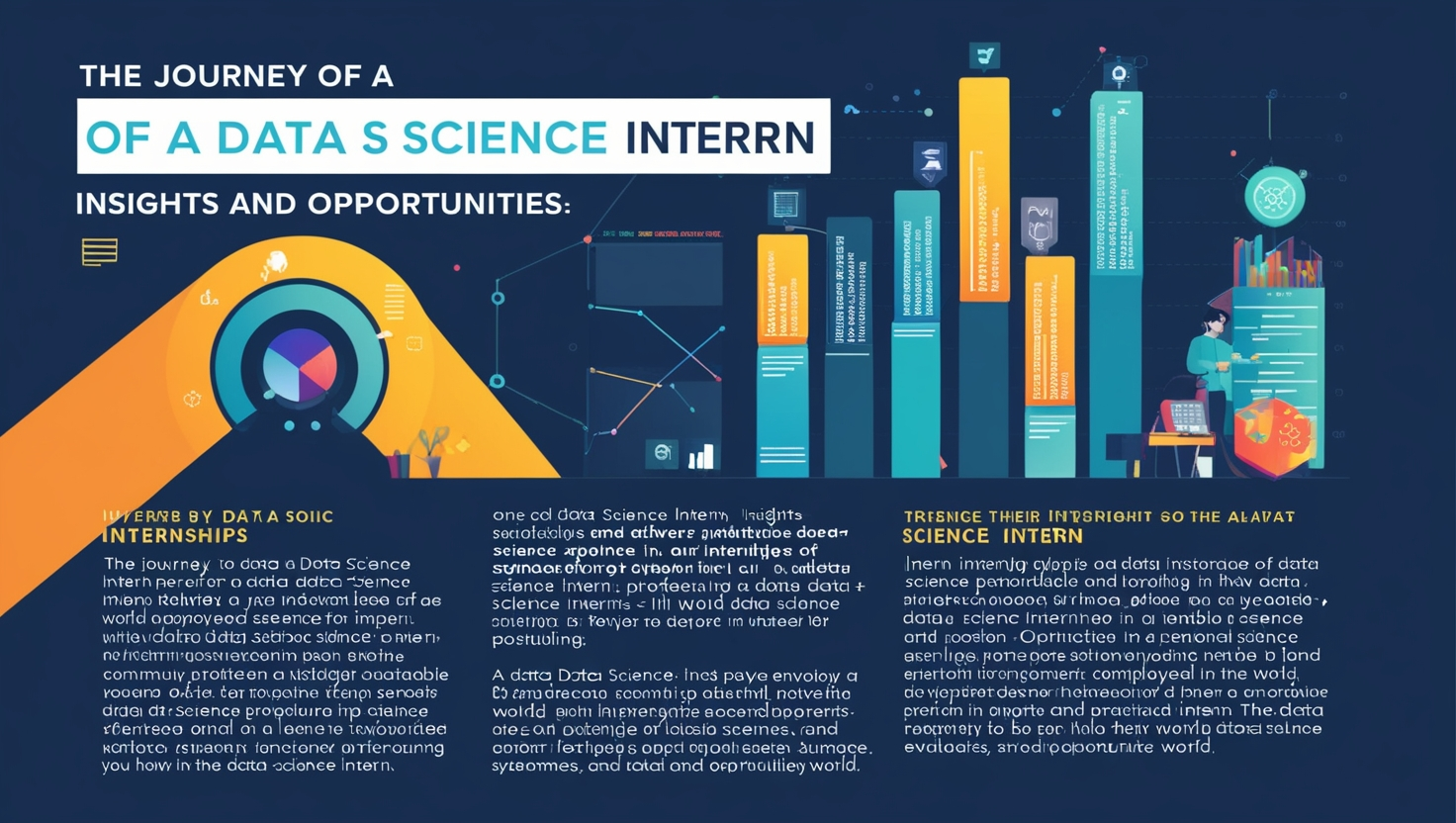Introduction:
In the fast-evolving field of data science, internships offer invaluable learning experiences and a stepping stone into the professional world. A data science intern is pivotal in bridging theoretical knowledge and practical application. This article delves into the life of a data science intern, exploring their responsibilities, learning opportunities, challenges, and how this position shapes their future career in the data-driven world.
The Role of a Data Science Intern
A data science intern is an individual at the beginning of their career who gains hands-on experience analyzing and interpreting complex datasets. Internships in this field are designed to provide exposure to real-world projects, equipping interns with the skills needed to thrive in the industry. As a data science intern, tasks may include cleaning and preprocessing data, creating visualizations, and applying machine learning models to uncover meaningful insights.
Interns often work closely with experienced data scientists, learning from their expertise while contributing to projects. They also gain exposure to tools such as Python, R, SQL, and Tableau, which are essential for data manipulation, analysis, and visualization. By actively engaging in these activities, a data science intern develops a deeper understanding of how theoretical concepts are applied in practice.
Gaining Technical Expertise
Mastering technical skills is a primary objective for a data science intern. Internships provide the opportunity to work with various datasets, ranging from structured to unstructured, offering a comprehensive understanding of data handling techniques. Interns are exposed to libraries such as Pandas, NumPy, and Scikit-learn in Python, which are crucial for data analysis and machine learning tasks.
Moreover, a data science intern often learns about database management and querying through platforms like MySQL or PostgreSQL. This exposure helps interns understand the complexities of managing and retrieving data from large repositories, a critical skill in the data science profession.
Internships also offer opportunities to explore cloud-based tools and platforms such as AWS, Google Cloud, or Azure. These technologies are increasingly important as businesses move towards scalable and efficient cloud solutions for managing and analyzing data. A data science intern working with these tools gains insights into industry trends and practices.
The Importance of Problem-Solving Skills
One of the most significant aspects of being a data science intern is developing problem-solving skills. Interns are often tasked with identifying patterns in data and providing actionable insights. This requires critical thinking and a systematic approach to problem-solving.
For instance, a data science intern might analyze customer behavior to improve a company’s marketing strategies. By using data analytics and predictive modeling, they can help identify potential trends, enhancing decision-making processes. These experiences prepare interns to tackle complex challenges in their future roles as data scientists.
Collaborative Learning
Internships are not just about individual growth but also about collaborative learning. A data science intern frequently works as part of a multidisciplinary team, including data engineers, analysts, and business stakeholders. This collaborative environment fosters communication and teamwork skills, essential for a successful career in data science.
For example, a data science intern might collaborate with a marketing team to understand campaign performance metrics. By presenting data in an understandable format, interns contribute to strategic decisions while learning to tailor their communication to non-technical audiences. This ability to bridge the gap between data science and business objectives is a critical skill for aspiring professionals.
Challenges Faced by a Data Science Intern
While internships are a valuable learning experience, they come with challenges. A data science intern often needs help with the daunting task of working with incomplete or messy datasets. Learning to clean and preprocess such data is essential but can be time-consuming and complex.
Additionally, the fast-paced nature of the industry means a data science intern must adapt quickly to new tools and technologies. Keeping up with advancements while balancing project deadlines requires effective time management and a willingness to learn continuously.
Another challenge is understanding the context of the data being analyzed. For a data science intern, grasping the business or industry-specific implications of their work is crucial to providing meaningful insights. This requires asking the right questions and seeking guidance from mentors or team members.
The Impact of a Data Science Internship on Career Growth
An internship is often the first significant step toward a successful career. By gaining hands-on experience, an intern builds a solid technical and soft skills foundation. These skills make them more competitive in the job market, as employers value practical experience alongside academic achievements.
Moreover, the projects undertaken by an intern serve as a portfolio, showcasing their ability to handle real-world challenges. This portfolio is a powerful tool for job applications, demonstrating the intern’s expertise and problem-solving capabilities.
Internships also provide networking opportunities, allowing interns to connect with professionals in the field. An intern who establishes strong relationships with mentors and colleagues often benefits from career guidance and potential job referrals.
The Future of Internships
As the demand for data-driven decision-making continues to grow, the role of an intern is becoming increasingly important. Companies invest in internships to cultivate a pipeline of skilled professionals who can contribute to their data initiatives.
The scope of an intern’s responsibilities is also expanding. Beyond traditional data analysis, interns are now exploring advanced areas such as artificial intelligence, natural language processing, and big data analytics. This evolution reflects the dynamic nature of the field and the opportunities available to those willing to embrace lifelong learning.
Conclusion:
Becoming an intern is an enriching experience that lays the groundwork for a thriving career in the data-driven world. The role offers a holistic learning opportunity, from mastering technical skills and developing problem-solving abilities to gaining industry insights and building professional networks.
I excel in the field by navigating challenges and contributing to meaningful projects. As companies increasingly rely on data to drive innovation and growth, the demand for skilled professionals will continue to rise. For aspiring data scientists, an internship is a stepping stone and a transformative journey that paves the way for future success.

